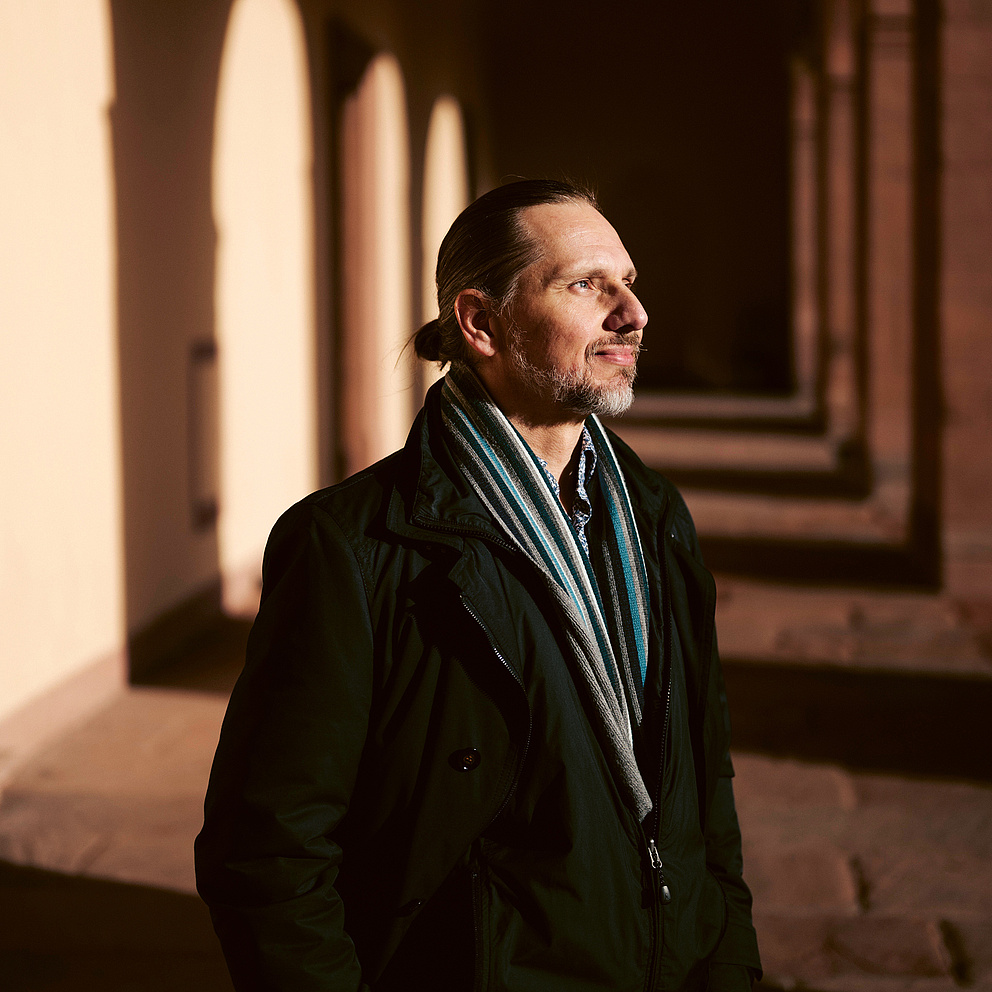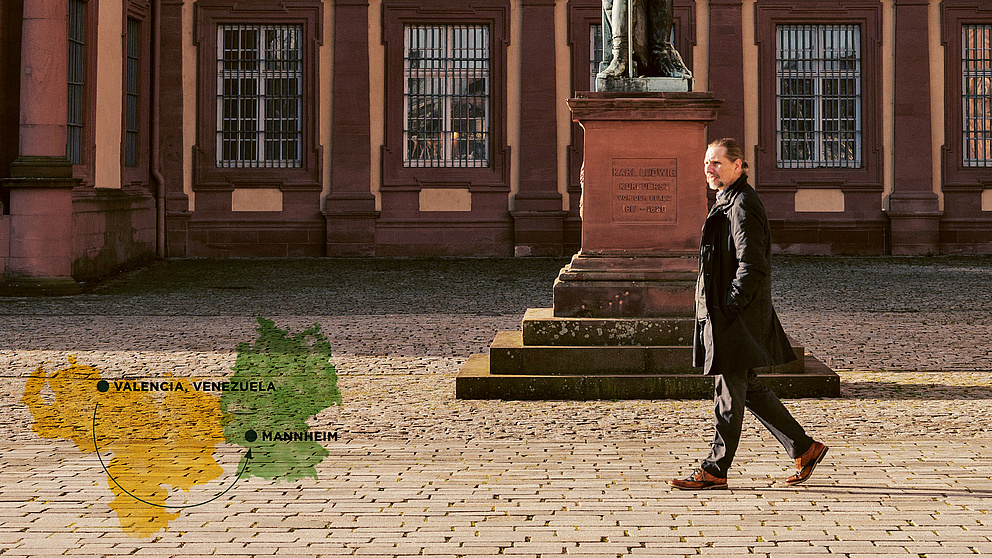Jump to the content
- {{#headlines}}
- {{title}} {{/headlines}}

Philipp Schwartz Initiative
Their home countries are blighted by war, their freedom of research is curtailed or they are persecuted: in many parts of the world, scientists and scholars are in danger. The Philipp Schwartz Initiative helps researchers who have fled their countries to find their feet at German universities and research institutions.
It’s not easy for me to think back to 2017, the year my family and I had to leave Venezuela. My wife, Liliana Kurz, and I were both biochemists at the University of Carbobo in Valencia at the time. Triggered by the economic crisis, protests against the government broke out everywhere and were immediately suppressed by the police. Many people died. In our daily lives, we long lacked water and electricity. At the university, it was impossible to work normally as a researcher. Consequently, many professors protested for better working conditions. We weren’t as such political activists, but in connection with the university we did sometimes take part in demonstrations. One day in April, I was at home because I wanted to collect the children from school, soldiers stormed the university and a fire broke out. Sitting in her office, my wife was in a sense trapped and didn’t know what was happening. Finally, she took a photo of the situation outside her window and sent the image to the Dean so that he could get help. Unfortunately, or perhaps in hindsight, fortunately, the image was shared on social media. As a result, we felt threatened and got really scared, especially as professors disappeared time and again in Venezuela. At our university, a quite well-known colleague had gone missing after publishing a newspaper report criticising the government.
It was fortunate that, just at that moment, an email arrived from Germany. Professor Dr Peter M. Kunz of the Institute of Biological Process Engineering (IBV) at Mannheim University of Applied Sciences asked whether my wife and I would like to submit a joint application to the Philipp Schwartz Initiative. Of course, we did, especially as our university had been shut down after the military intervention. We were stuck working from home – just like now during the pandemic. But in 2017, we had absolutely no professional or personal prospects. I knew Professor Kunz from previous research stays and through visiting professorships at Hochschule Mannheim; I had previously done a doctorate at Johannes Gutenberg University in Mainz.

Prof. Dr. Jeff Wilkesmann
Country of origin:
Venezuela
Scientific Field:
Biochemistry & Biotechnology
Host Institution:
Hochschule Mannheim
Sponsorship Philipp Schwartz Initiative:
08/2018 – 07/2020

We were very relieved when we were accepted for the Initiative and subsequently had just four weeks to prepare our departure. Knowing that you are probably never going to returnis a great strain. But even my daughter, who was seven at the time, and my 14-year-old son realised that this was a one-off opportunity – if only due to the prospect of continuous access to water and power. Despite road blocks, closed embassies and cancelled flights, we were able to leave Venezuela as planned and arrived in Germany at the beginning of August.
In Mannheim, I continued my work at the Institute of Biological Process Engineering (IBV) and my cooperation with the International Water Aid Organisation. We developed emergency water cases which can be used in disaster areas to turn dirty water into hygienic drinking water. As a family we had a good start, too: our children quickly learnt to speak German and we parents had to learn to let them go to school on their own – in Venezuela this is not a common thing to do because of the constant threat of kidnapping. After my two-year fellowship ended, I was able to continue as a lecturer at the university and I also work for EIT Health Germany, an EU funded initiative to promote health in Europe. At the end of the Philipp Schwartz sponsorship, my wife initially had a four-hour-a-week position at the university. She is currently looking for a new opportunity and also doing a work placement with a view to working as a nurse.
Five million people have fled Venezuela since 2017. We are grateful that we have settled down so well in Mannhein.
Recorderd by Carola Hoffmeister

